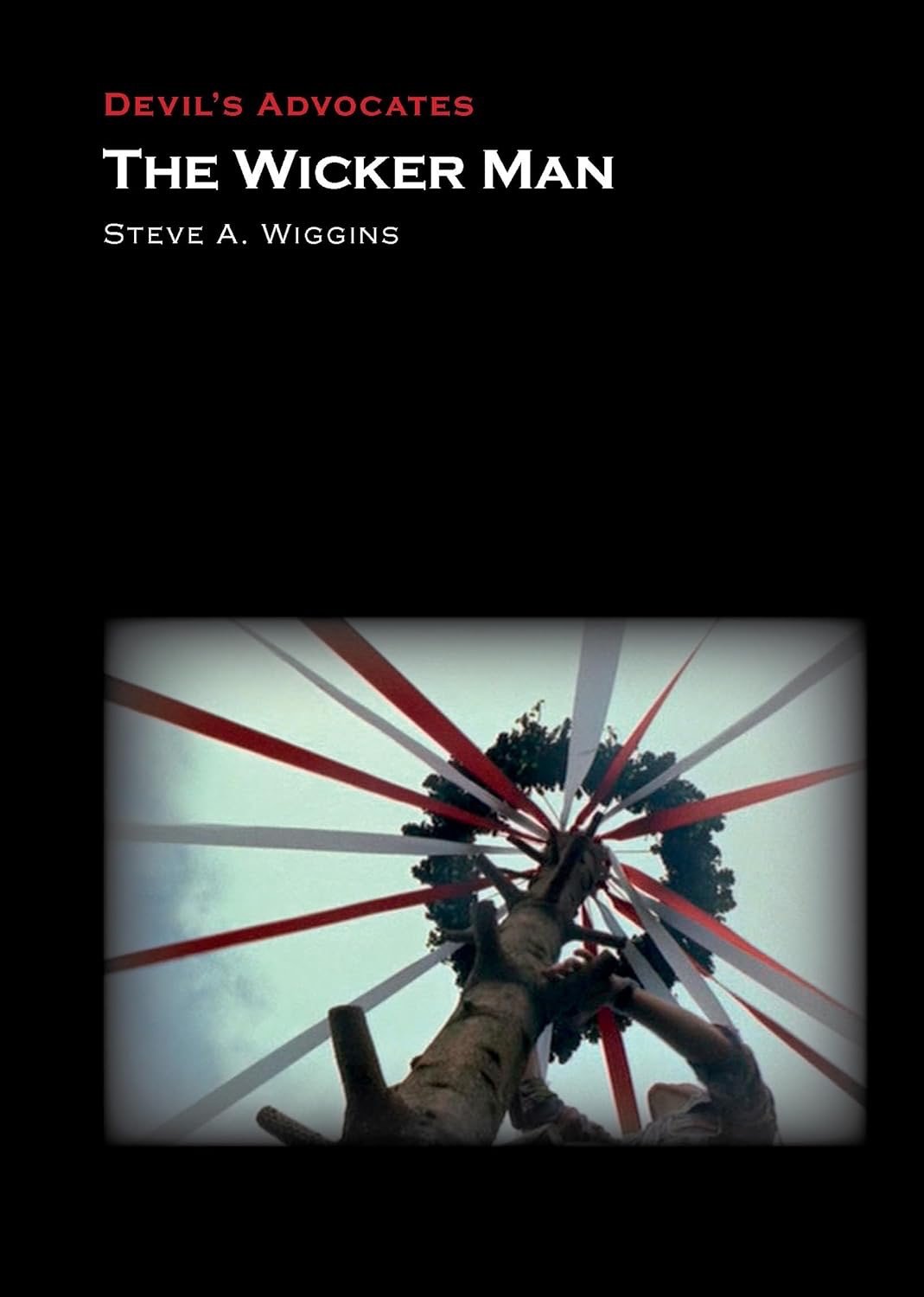DEVIL’S ADVOCATES: THE WICKER MAN
****
Written by Steve A. Wiggins. 120 pp
Out now from Auteur / Liverpool University Press.
Three of horror’s most enduring, discussed, debated, and scarring feature films turn 50 this year: Nicolas Roeg’s still-wrenching DON’T LOOK NOW, William Friedkin’s still-terrifying THE EXORCIST and Brit horror milestone THE WICKER MAN. Countless pages have been written about their productions, reactions back in 1973, and individual controversies and ambiguities. Now, ahead of Studio Canal’s lavish 4K home video releases, Steve A. Wiggins, author of “Holy Horror: The Bible and Fear in Movies”, brings a fresh perspective to Robin Hardy’s film via Auteur’s prolific “Devil’s Advocates” series of genre monographs – now in handsome hardback format!
At the outset, Wiggins makes an important distinction about the direction and focus of his analysis. Acknowledging the various other studies and books about THE WICKER MAN, he immediately confirms the version used for this book (for significant reasons that become clear later) to be the original 88-minute theatrical release – thus avoiding the trap and debate around “Director’s” cuts and “Final” cuts along the way. He also lays the groundwork for focusing on “holiday horror” over a potentially limited (and familiar) folk horror-themed exploration.
Early on, seemingly obvious yet often overlooked factors emerge. Wiggins reminds us that the movie’s narrative is set around May 1973, making it as contemporary as possible (its original release was five months later) and positioning it with other “right now” horrors of the period – some of which, notably THE TEXAS CHAIN SAW MASSACRE, date stamp their events on screen. He compares Anthony Shaffer’s script to the 1967 David Pinnon novel “Ritual”, a key inspiration despite being set around Midsummer in Cornwall and following a rather different narrative path.
Wiggins proves an engaging, erudite commentator on assorted interlinked elements, with the recurring holiday horror themes (notably, sacrifice) running parallel to an examination of the origins of what we know as “holidays” / “vacations” and a consideration of religion’s transformation through the centuries. A focus on THE WICKER MAN’s approach to paganism – and the late Hardy’s own definition of it as a “cautionary tale” – concludes that the story operates both as a warning of religion being taken too seriously and a tale of two religions “unwilling to bend and colliding over a holiday”. The deep dive further positions Hardy’s picture in the context of the major Hollywood Christian-themed horrors of the time (from ROSEMARY’S BABY to THE OMEN), the 1970s fear of cults and much later features treading similar ground, most notably Ari Aster’s divisive MIDSOMMAR.
A compelling study of theology and horror begins with the reminder that THE EXORCIST and THE WICKER MAN were released the same year as JESUS CHRIST SUPERSTAR while considering how the counter culture altered how sex and religion are viewed. Wiggins is adept at examining key details we may have missed despite multiple viewings over the decades: cakes shaped like children, a fleeting shot of a shadow crucifix, subtle suggestions of the grooming of Edward Woodward’s Howie as the perfect sacrifice, even “May Day” itself existing as a distress signal. Other topics are equally well considered: the evolution of Wicca, “masking” in religion and the notion of “Scary Sex”, tracing May Day’s integral link to sexuality and finding echoes of Howie’s sexual anxiety in everything from the harrowing rape in the earlier BLOOD ON SATAN’S CLAW to the much later IT FOLLOWS.
There’s a lot packed into this compact format, including a closing look at Neil LaBute’s much-mocked 2006 remake, with its dubious background of the women victimised in Salem, along with 21st-century successors, including Hardy’s own THE WICKER TREE, Pinner’s quasi-sequel novel and even Radiohead’s evocative “Burn the Witch”. Not that you ever need it, but Wiggins’ highly perceptive and refreshing study will provide yet another excuse to revisit and celebrate one of Britain’s greatest achievements in the genre.
Steven West

